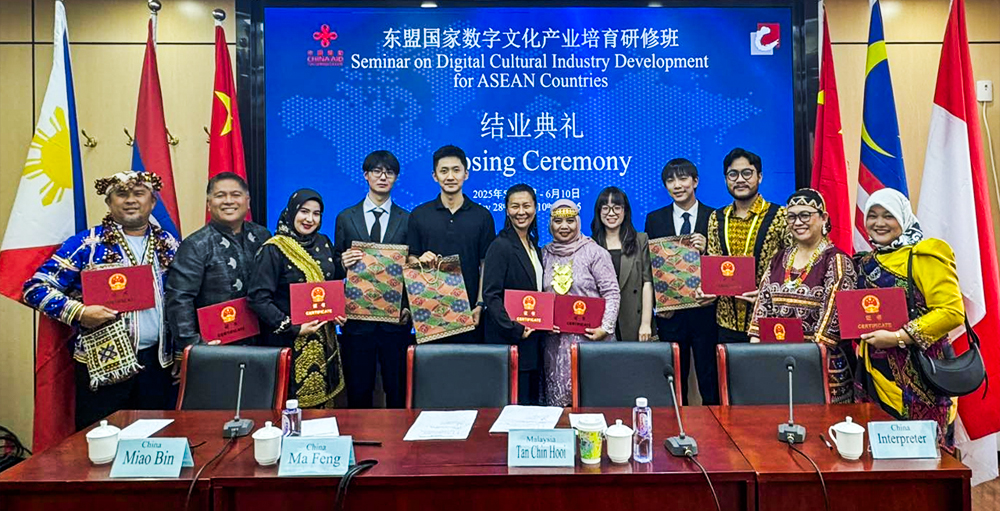To foster knowledge on digitalization of culture and traditions, three Deputy Mayors from the 11 ethnolinguistic groups in the city attended the Seminar on Digital Cultural Industry Development for ASEAN countries from May 28 to June 10.
The 14-day seminar that was organized by and held at the Central Academy of Cultural and Tourism Administration in Beijing, China was attended by representatives from ASEAN countries including Deputy Mayor Sheirelle Uy-Anino of the Bagobo-Tagabawa tribe, Deputy Mayor Erwin Adolfo of the Bagobo-Klata tribe, Deputy Mayor Rahima Usman-Polao of Bangsa Maranao, and Davao City Economic Enterprise Manager Maximo Macalipes Jr.
The seminar presented the host country’s exploration and practice of promoting the high-quality development of cultural industries as well as how they were able to incorporate modernization in promoting and preserving their country’s culture and tradition.
Topics on technology-driven innovation and development of cultural industry, transformation and upgrading of cultural industry empowered by digital thinking, and digital protection of intangible cultural heritage was also discussed during the seminar.
Macalipes and Uy-Anino also shared that during the seminar, they were exposed to several locations in the country where technology-driven innovations in synergy with cultural industry is evident including the Tencent Technology Group, Beijing Automobile Museum, and 798 Art District.
The deputy mayors expressed their gratitude to the city government for the opportunity to attend the seminar and gain more insights on how digitalization and modernization can be utilized in the cultural preservation of the 11 ethnolinguistic groups in the city.
Adolfo shared that they were able to gain new insights in terms of digitalization of culture and traditions.
The seminar provided them with new knowledge on the process of incorporating modernization in cultural preservation and transmission to the younger generation.
Adolfo bared that introducing the idea of digitalization of culture and tradition for its preservation remains a challenge within communities such that elders tend to have a mentality that cultural practices and traditions should be kept only within the community.
These practices are only put under the spotlight during events or when deemed necessary.
“Dapat i-embrace, i-integrate sa culture and tradition ang modernization para mas ma-uplift nato ug makuha nato ang interest sa younger generation (We have to embrace and integrate modernization in our efforts to preserve culture and tradition to further uplift it as well as capture the interest of the younger generation),” Adolfo said.
In the advent of technology and rapid globalization, proper transmission of cultural heritage to the next generation of Indigenous People prove to be a challenge as the majority embraces mainstream and hybrid cultures.
Usman-Polao said it was high time to digitize the cultural industry in the city in line with both the city government’s thrust to digitizing services as well as to further its preservation efforts as this will help reach the younger generation more.
The City Government of Davao, in partnership with its 11 ethnolinguistic groups, continues to create programs that are grounded on the needs of the community and ensure the preservation of its cultures and traditions. CIO


